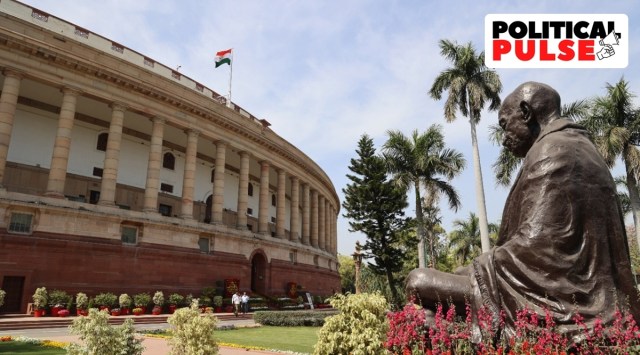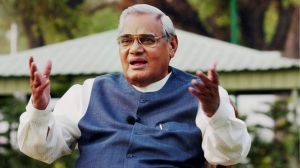Parliament’s Standing Committee on Rural Development and Panchayati Raj has asked the government to roll back the system of caste-based wages, under which NREGS workers are paid based on whether they belong to a Scheduled Caste, Scheduled Tribe, or Others. The panel has asked the Ministry of Rural Development to restore the earlier system by which a single Fund Transfer Order was generated without “any sort of segregation on the basis of caste”.

On March 2 last year, the Rural Development Ministry sent an advisory to states asking them to take necessary action for payment of wages to NREGS workers according to their categories — SC, ST, and Others — from the 2021-22 financial year. Under the new system, if 20 individuals (say, six SCs, four STs and 10 others) work together at a site under MG-NREGA, a single muster roll would be issued, but payment would be done by issuing three separate Fund Transfer Orders (FTOs), one for each of the three categories.
After the new system came into force on April 1, 2021, some beneficiaries started complaining that despite working at the same site and registering on the same muster roll, they were getting their wages at different times depending on their categories. Beneficiaries in the ‘Others’ category, which includes the ‘General’ and Other Backward Classes (OBC) categories, especially complained of delays.

The Ministry’s decision, which was denounced by civil society activists at the time, has now been criticised by the parliamentary panel as well. The Committee headed by Prataprao Jadhav, Shiv Sena member from Buldhana, said NREGS workers are part of the “economically weak populace and can come from any religion/caste, [and] creation of such payment system wherein one specific community is preferred over the other solely on the ground of caste will only give rise to resentment and create rift among the beneficiaries of MGNREGA”. “The practice which started from 2021-22 itself needs to be addressed urgently and not to be encouraged any further by ensuring that each and every labour working under the Scheme, irrespective of caste, gets payment within time-frame fixed by the MGNREGA,” it said in its report tabled in Lok Sabha on Wednesday.
What was the earlier system of payment?
The Rural Development Ministry notifies wage rates for states and Union Territories under Section 6(1) of The Mahatma Gandhi National Rural Employment Guarantee Act, 2005. Until 2020-21, the wages were being paid to NREGS beneficiaries through a single funds transfer order. In other words, if 20 beneficiaries, including SCs, STs and Others work at a site under MGNREGA, all received their wages at the same time, through a single muster roll and a single funds transfer order.
Why was the system of caste-based wage payment introduced?
According to the Ministry, the system of category-wise payment of wages was introduced to “accurately reflect on the ground flow of funds to various population groups”. Last October, a process of “streamlining” of the new system was taken up.
What specific criticisms has the Committee put forward?
Story continues below this ad
In its report, the Committee said, “A startling fact that came to the fore during the examination of Demands for Grants 2022-23 pertaining to the mechanism of payment of wages being employed under MGNREGA was the audacious practice of wages being paid to the MGNREGA beneficiaries on the basis of caste, i.e. in the order of priority starting from SC/ST to remaining others.
“The Committee were taken aback and aghast on such revelation. Belying all logic and employing such modality, surpasses any prudence whatsoever. The Committee finding themselves at a total ‘loss of words’ could not fathom the rationale behind such idea.”
The Committee pointed out that MNREGS draws from the MGNREG Act, 2005, in which “such absurdity is nowhere mentioned”. The digression from the “basic tenets of treating all the MGNREGA beneficiaries at par calls for sternest possible criticism”, it said.
“The beneficiaries of MGNREGA cutting across the different sections of society have only one thing in common, i.e., they are poor, destitute and have no other fallback option but MGNREGA to look upon for their basic source of survival,” the Committee said. The system of caste-based segregation in wage payment would “give rise to resentment and create rift”, it said. It said the practice needed to be addressed “urgently”, and should not to be encouraged any further. It should be ensured that all labourers under the scheme receive payment within the timeframe fixed by the MGNREGA.
Story continues below this ad
“In view of such piquant situation, the Committee unanimously recommend DoRD to restore the earlier mechanism of generation of single Fund Transfer Order without any sort of segregation on the basis of caste so that the welfare oriented nature of MGNREGA is not divided on caste basis,” it said.


































